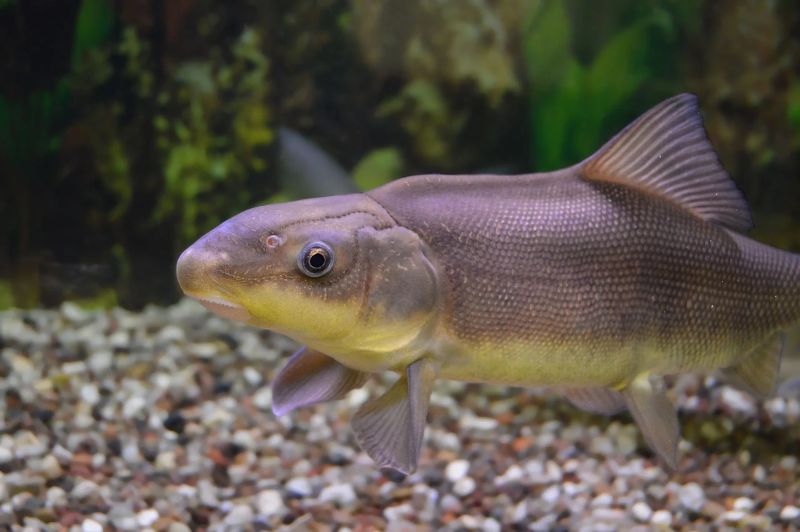We’re pleased to share our lab’s contribution to a new paper in Molecular Ecology that explores how cold-water releases from dams can affect the development of the endangered razorback sucker (Xyrauchen texanus). This species evolved in the warm, dynamic waters of the Colorado River Basin, and while much conservation attention focuses on the effects of warming temperatures, this study shows that artificially cold water can also pose a serious challenge for native fish.
Led by colleagues at the U.S. Fish and Wildlife Service, the research combined genetic and physiological data to examine how temperature influences developmental rates and early life-history traits in razorback sucker. The findings highlight that cold-water releases from upstream reservoirs can slow development, potentially disrupting recruitment and reducing survival during critical early life stages.
The paper adds to a growing understanding of how altered flow and temperature regimes affect aquatic species in regulated river systems—and how conservation efforts need to consider not just climate warming, but also the impacts of engineered cold-water inputs on native fish adapted to warmer conditions.
Read the full article here: Molecular Ecology article

